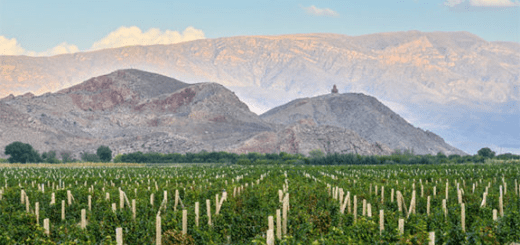Night Train to Yerevan

I had arranged my homeward flight from Yerevan so that I could ride the night train (kitted out with new livery) from Georgia to Armenia. I managed to buy a ticket online, but was unsure—as the confirmation was in Russian—whether I would have the compartment to myself. As Paul Theroux has often written: “Better to go first class than to arrive.”
The streets were rain slick and crowded with traffic when I picked my way across Tbilisi to the railway station. By now I had a preferred route across the city, and at the station I had figured out how to ride up to the platform level.
After I did that, the train was switched to yet another platform, which meant repeating the schlepping exercise up and down another set of decaying stairs. Overall, the wait for a train in Tbilisi feels like idling in an underground parking garage.
The train pulled into the station late, although new cars glistened in the night air. At first the porter for my car balked at the sight of my bicycle, but then warmed when I folded it up and slipped it into a bag. For the remainder of the trip she could not have been more kind or attentive, although her job on this particular night was a struggle.
In my car there was a group from Korea—judging from the affluence, I believe it was from the South, but cannot be sure. What suggests it would well have a North Korean delegation is that no one in the group spoke English.
One of the Koreans was assigned to my compartment. I was dismayed, but by now used to the vicissitudes of night-train travel in Europe, and I didn’t complain to the porter. But my Korean fellow traveler was furious to find a non-Asian in his compartment, and he complained bitterly to the porter and was rude to me (refusing to move his bags from my berth, etc.).
I had paid enough for my ticket to have had the compartment to myself, but once I was settled by my window and was sipping on the cold beer I had brought along for the ride, I stopped thinking about my unpleasant travel mate, although even in his sleep he seemed to be mumbling at me.
Before midnight, the train stopped at the border crossing known as Bagratashen – Sadakhlo. Everyone filed off the train at the small station with their passports to get stamped out of Georgia and into Armenia.
My Korean roommate was unaware that we would be stopping for such middle-of-the-night formalities, and in a panic he had to queue in his pajamas, robe, and slippers, which amused the members of his travel group.
There were few, if any, stops between the border and Yerevan, where we arrived around 6:20 a.m. Unlike Tbilisi, the main station in Yerevan dates to the grand era of Soviet railroading, and even now the stately terminal has a red star soaring from its cupola.
My plan for breakfast was to picnic in Republic Square—a vast open space in the city center—and I did a little shopping at a kiosk in the Yerevan station.
When I got out to the front of the station, I came across the Korean group, whose rage this time was directed at their tour leader, as the bus meeting them had failed to arrive. Nor were there taxis to take the sullen travelers to their hotel. I derived some minor satisfaction in their collective anger as I pedaled away from the station at dawn’s early light.
Unlike Tbilisi, Yerevan—at least at 6:20 a.m.—was a dream on a bicycle, and the weather was warm and sunny. The city has wide boulevards and many bus lanes (which work well for cyclists). I had no trouble finding Republic Square, as many roads lead there.
Once in the town center, I picked a sunny bench for my picnic, and there I had one of the best meals of my travels, with fresh fruits and juices, a hardboiled egg, and hot tea.
Like Grigory Pechorin in A Hero of Our Time, I travel with a thermos or as he says: “I invited my fellow-traveller to drink a tumbler of tea with me, as I had brought my cast-iron teapot—my only solace during my travels in the Caucasus.”
Although in theory I was having breakfast at Armenia’s ground zero—at the center of Republic Square in the capital, Yerevan—nothing could be harder to define, even today, than the idea of Armenia. Even more than 100 years ago, the historian J.A.R. Marriott wrote in The Eastern Question:
Armenia itself is an ill-defined geographical area lying between the Caspian, the Black Sea, the Caucasus, and Kurdistan, partitioned between the Empires of Russia, Turkey, and Persia. But while ‘Armenia’ has no official geographical existence in the gazetteer of the Ottoman Empire, the Armenians have been for centuries among the most important sections of Turkish society. ‘To the Albanians the sword; to the Armenians belongs the pen.’
And as this was written, Armenia (wherever it lay) was being scattered to the winds.





